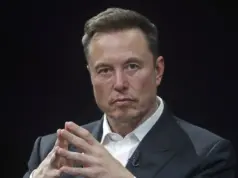Samsung and LG are all set to expand their rivalry into a whole new realm – that of 8K TVs. And both companies have made known their intentions of unveiling new 8k enabled TVs at the upcoming IFA event in Berlin.
In fact, LG has already taken the lead here after having launched an 8K OLED TV which it claimed to be the world’s first. What is remarkable with the new TV is that it features OLED tech and not LCD, which LG justified saying OLED provides for more vibrant colors and deeper blacks.
Also, of course, the other standout feature with the new TV is its size, which at 88-inches makes everything else look puny. That makes for a quite generous surface area to squeeze in the 7680 X 4320 pixels that make a typical 8K TV. That makes for four times as much pixels as on a 4K TV and 8 times more than the standard Full HD TVs.
Not to be outdone, Samsung too has gone to town proclaiming the arrival of a whole series of 8K TVs in the Q9FN series. Of course, the company is holding on to many of the key details of its new-gen 8K QLED TVs though what has come to the fore is that it’s going to measure 85-inches. That makes it massive too in its own right though just a few inches less than that of the LG offering. Others in the series will be measuring 82-, 75- and 65-inches though all of them will have the same 8K resolution.
Also, the 8K TV will have a peak brightness level of 4,000 nits, which easily is among the highest in a consumer TV so far and is twice that of the brightest LCD or LED TVs currently available. The company attributed that to a new advanced backlighting technology which it claims will support HDR tech like never before.
However, with so much for 8K TVs, many have also expressed doubts if TVs with so many pixels and so huge dimensions have any scope in the consumer segment even though they might make great displays in a commercial space. Also, the lack of native 8K content is another aspect many believe may not make 8K TV such great buys after all. Then there also is the issue of internet bandwidth which too may not be prepared to deal with such high data transfer rates even in the most developed parts of the world.
LG though seems undeterred by all such and has exuded confidence the 8K TV market will be worth 5 million units by 2022. Samsung, on the other hand, has stated its new OLED 8K TVs will be ready for a market onslaught later this year and will be priced cheaper than many might be thinking.










